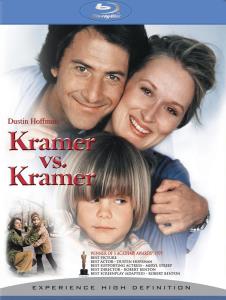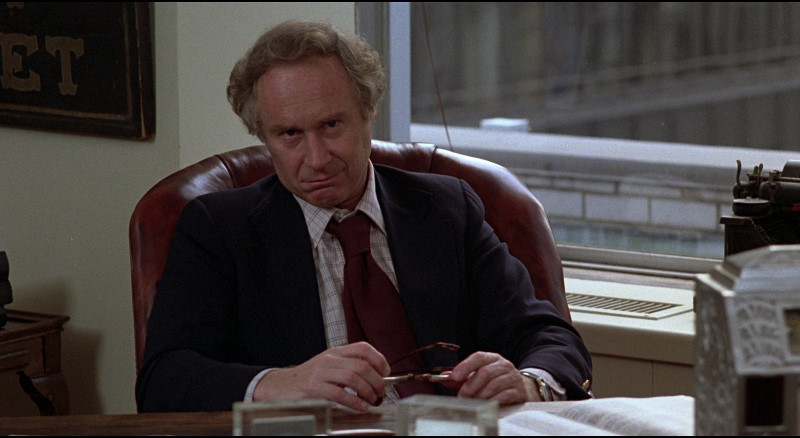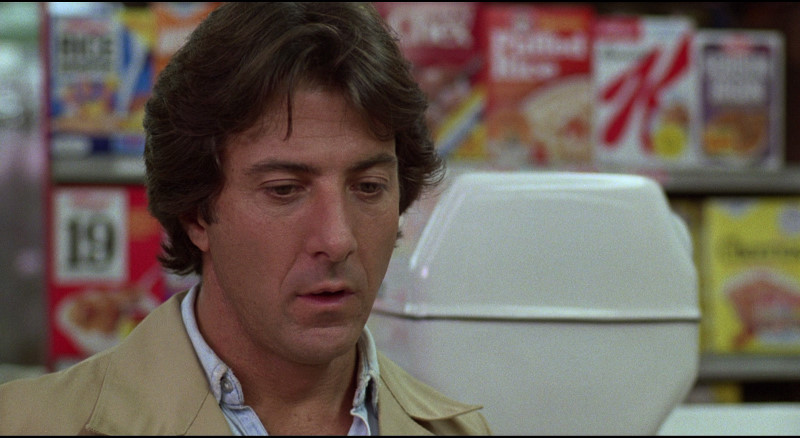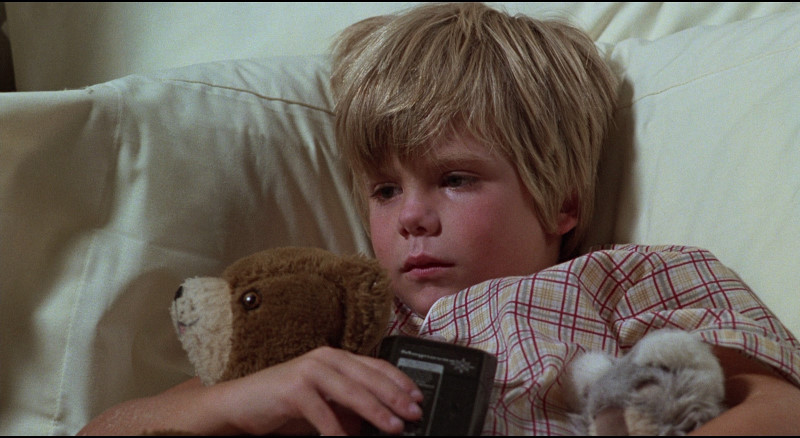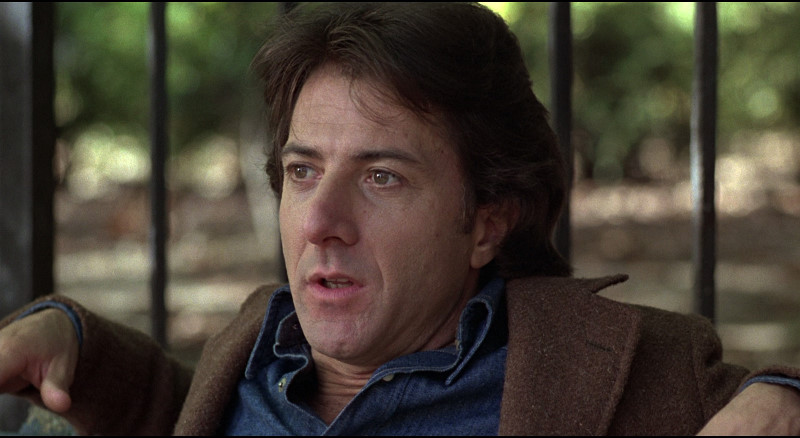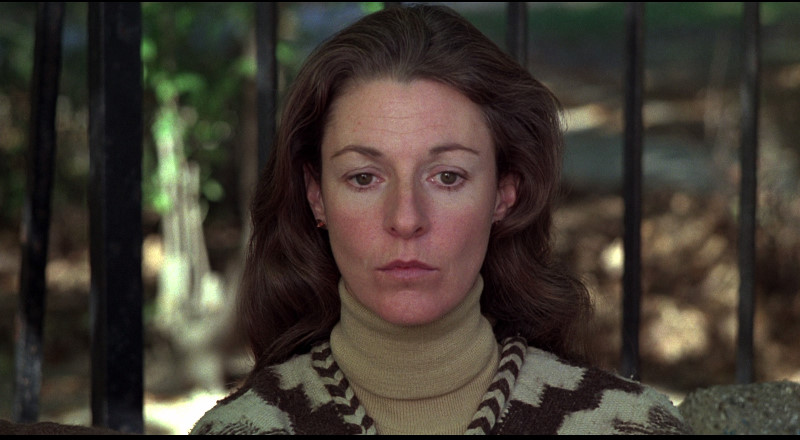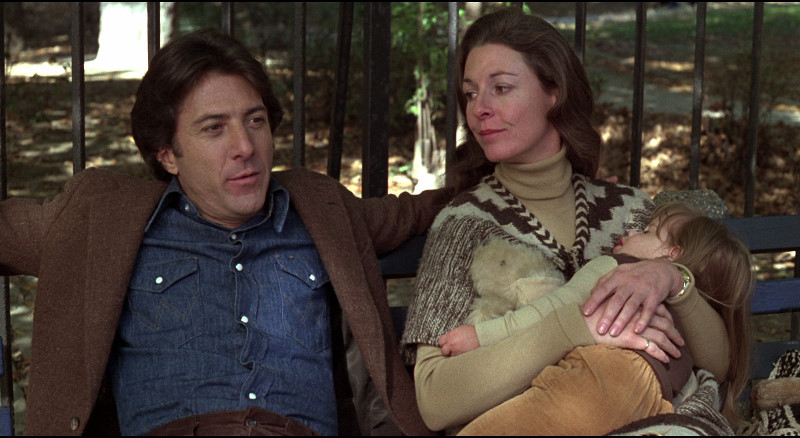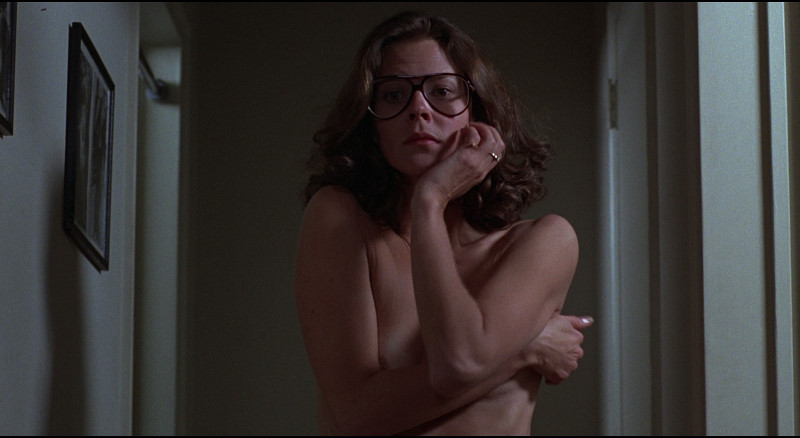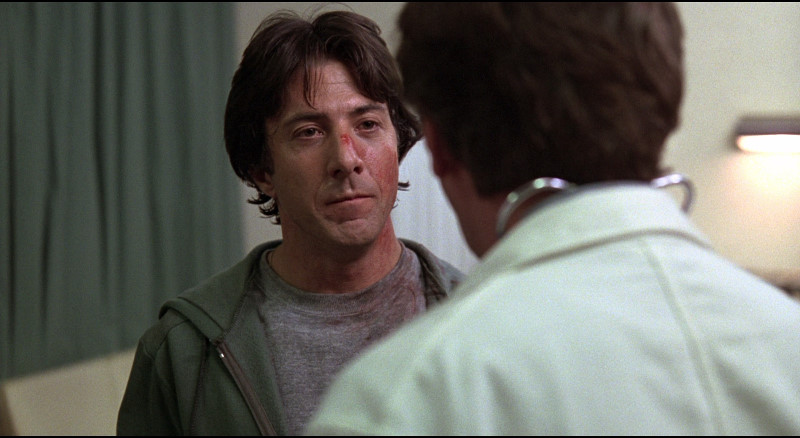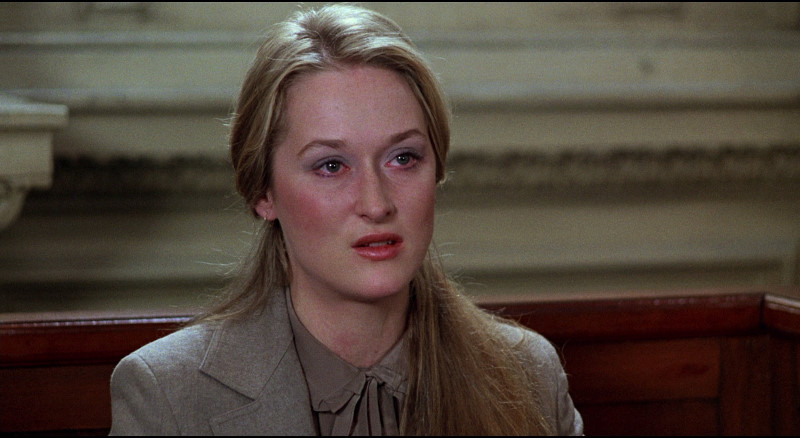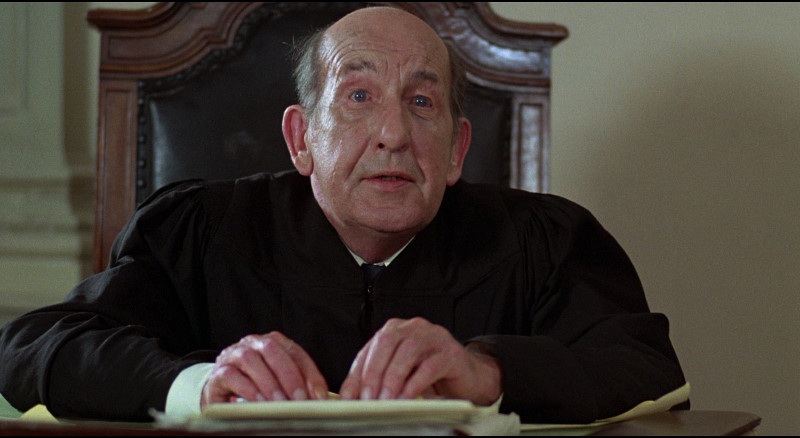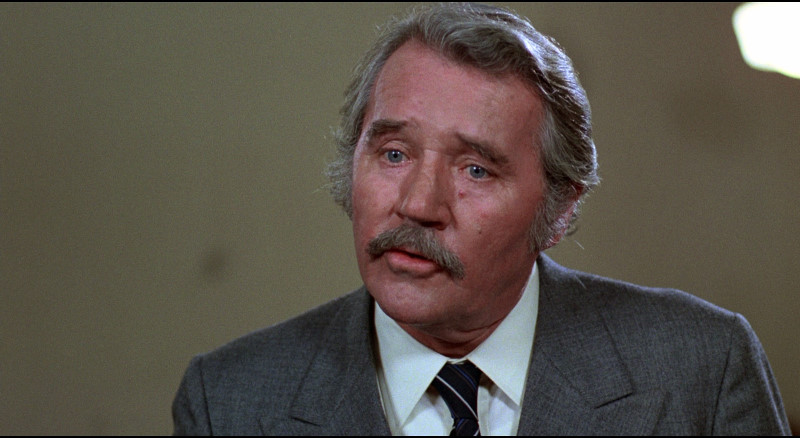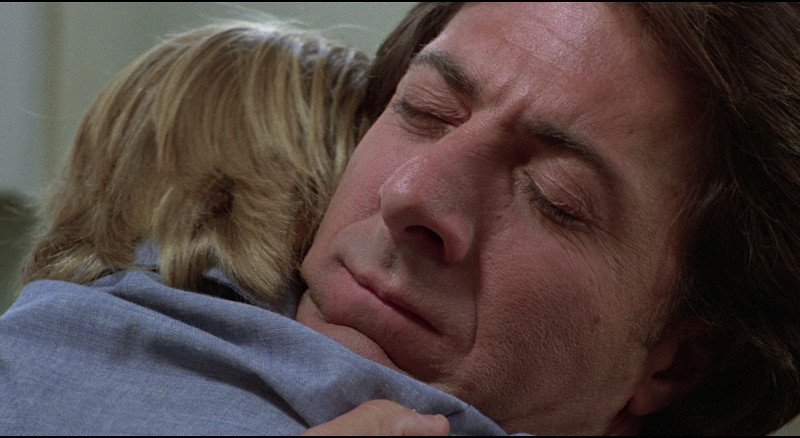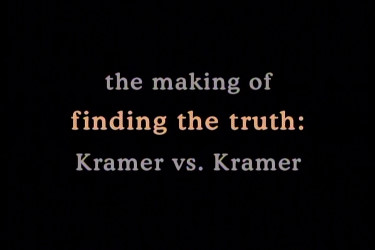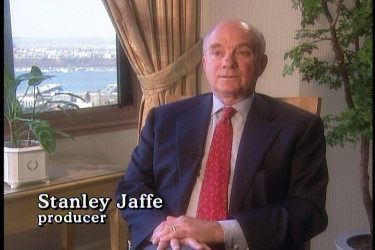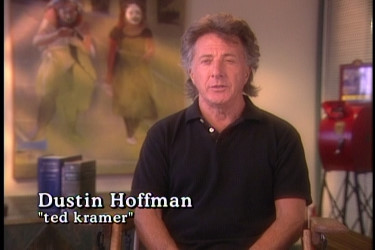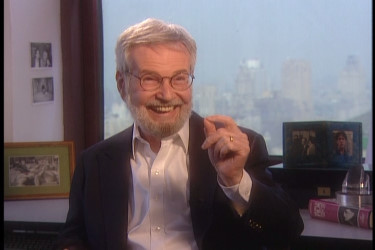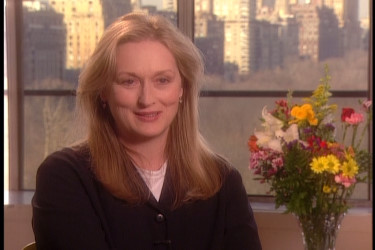|
Kramer vs.
Kramer [Blu-ray]
(Robert
Benton, 1979)
Review by Leonard Norwitz
Production :
Theatrical: Columbia Pictures & Stanley Jaffe
Video:
Sony Pictures
Disc:
Region: ALL
(as verified by the
Momitsu region FREE Blu-ray player)
Runtime: 1:44:48.282
Disc Size: 33,585,697,809 bytes
Feature Size: 29,871,372,288 bytes
Average Bitrate: 27.73 Mbps
Chapters: 16
Case: Standard Locking Blu-ray case
Release date: February 17th, 2009
Video:
Aspect ratio: 2.35:1
Resolution: 1080p / 23.976 fps
Video codec: MPEG-4 AVC Video
Bitrate:
Audio:
Dolby TrueHD Audio English 1243 kbps 5.1 / 48 kHz / 1243
kbps / 16-bit (AC3 Core: 5.1 / 48 kHz / 640 kbps)
Dolby TrueHD Audio French 1177 kbps 5.1 / 48 kHz / 1177 kbps
/ 16-bit (AC3 Core: 5.1 / 48 kHz / 640 kbps)
Dolby TrueHD Audio Portuguese 1401 kbps 5.1 / 48 kHz / 1401
kbps / 16-bit (AC3 Core: 5.1 / 48 kHz / 640 kbps)
Dolby Digital Audio Spanish 640 kbps 5.1 / 48 kHz / 640 kbps
Subtitles:
English (SDH), English, French, Portuguese, Spanish, none
Extras
• Making of Kramer vs. Kramer – in SD (48:44)
Comment:
The Movie: 7
Every once in a while the Academy of Motion Picture Arts &
Sciences honors a relatively little film with its highest
kudos Kramer vs. Kramer walked away with 5 Oscars in
important categories: Best Picture, Actor, Supporting
Actress, Director, Adapted Screenplay. This used to be a
much more common occurrence for Best Picture (How Green
Was My Valley,
The Best Years Our Lives,
Gentleman’s
Agreement, Lost Weekend,
All About Eve and
Marty spring
immediately to mind), but in the past 50 years, we have seen
fewer such entries (e.g. Annie Hall,
In the Heat of the
Night, Driving Miss Daisy,
The Silence of the Lambs), the
Oscars more often going to movies with relatively huge
production budgets.
Kramer vs. Kramer was adapted for the screen by its
director, Robert Benton, from the novel by Avery Corman
(who, coincidentally, wrote the novel Oh, God! - the popular
movie featuring George Burns and John Denver.) Corman’s book
(1977) is thought to have been instrumental in rethinking
child custody issues in the courts.
With not a moment to lose, Benton put out a movie with a
major star, Dustin Hoffman, as the second of the two Kramers
in the title, and strongly supported by a striking, rather
high strung blonde named Meryl Streep, very much at the
beginning of her career (with Deer Hunter and Julia behind
her). But the movie is nothing without 8 year old Justin
Henry in a remarkably natural performance as the younger
Kramer, and the focus of everyone’s attention. Justin is so
appealing, without that smartass precociousness that
Hollywood child actors were once famous for, that we can
easily overlook some of the script’s leaps of consciousness
(as when Hoffman tries to explain to his son why mommy left,
confessing insights not previously in his field of view, so
far as we know.)
The plot is pretty straightforward and not unfamiliar to
some of us: Ted (Hoffman) has just been given an ad man’s
dream account and comes home to his wife, Joanna (Streep),
to share the good news. He’s so excited he can barely
decipher her words “I’m leaving you.” No ultimatum. Just the
last in a series of last straws. He has ignored her as a
person for the last time. But it’s not just Ted she leaves,
it is also their son Billy (Henry) who’s on the verge of
entering the first grade. Joanna feels she is in no
emotional shape to attend to the needs of a young child. For
that matter, neither is Ted, but he buckles down to the task
with attendant exasperation, comedy, and little resistance.
With the many tasks of child care that he takes on himself,
dismissing, doubtless more out of guilt than anything else,
the question of sending Billy off to relatives for a while -
what any sane man would do in his place - he quite naturally
loses the account before very long. Months later Joanna
reappears, feeling buoyed by her holiday and therapist, and
sues her now ex-husband for custody of Billy. Take that, you
unfeeling workaholic!
Which brings me to my reservations about the movie: its
politically motivated predictability. It’s all very well
and, no doubt, overdue at the time, that fathers are
recognized as loving parents - able, in many cases, to do
the parenting thing, even whilst holding a full time job.
But the script stacks the deck against Streep (Joanna’s off
to California – of all places – to find herself, and does so
in just a few months. I can see her biting her nails
whenever the camera is not on her.) Add to this Nestor
Almendros’ lighting of Joanna as a Madonna (in court at
least), which leads us to feel the heavy hand of
manipulation. Such things go against the grain set up so
nicely by the priceless and artlessly staged scenes between
Justin and Dustin, making the final resolution feel like a
cheat.
Image: 9/9
NOTE: The below Blu-ray captures were ripped directly from the
Blu-ray disc.
The first number indicates a relative level of excellence
compared to other Blu-ray video discs on a ten-point scale.
The second number places this image along the full range of
DVD and Blu-ray discs.
Source materials for the movie have held up very well after
30 years. The presentation is very filmlike, capturing the
subtleties of Nestor Alemendros’ lighting in every scene.
The dynamic range of color and contrast is naturally
conveyed with no sense of exaggeration or thinness. Some
scenes, like the final embrace between Ted and Billy, are so
clear and sharp it produced an audible sigh at my home. Film
grain is maintained, though subtle. DNR and over-sharpening
seem non-existent. If there were blemishes I didn’t catch
them.
CLICK EACH
BLU-RAY
CAPTURE TO SEE ALL IMAGES IN FULL 1920X1080 RESOLUTION
Audio & Music : 7/9
The music for Kramer vs. Kramer, like that for A Little
Romance, George Roy Hill’s delightful comedy romance that
launched the career of Diane Lane that same year, is largely
based on music by Vivaldi – pretty much the same Vivaldi at
first hearing. It must have been a case of déjà-vu all over
again for audiences who saw both movies. As expected for
such a film, the action is very much in front of us, making
for little work for the surrounds, except for some ambient
cues at the playground or when Ted is catching a cab in a
busy downtown. Dialogue and fried french toast, which are of
course the most important audio concerns in this movie, come
off crispy and clear.
Operations :
7
The disc loads quickly following a brief, skippable promo
for the medium. The chapters are nicely, if uneventfully
thumbnailed, and there’s only one extra feature to clutter
the frame.
Extras :
6
Interviews with Producer Stanley Jaffe, Writer/Director
Robert Benton, Actors Dustin Hoffman and Meryl Streep are
woven together, along with footage from the movie to follow
events from buying the rights, to casting, to the
realization of the movie. Of most interest is the courting
of Hoffman, who was going through some painful family issues
of his own at the time and was unsure that he could get into
the right space to make his performance work. He ended up
becoming heavily involved in the process of producing the
film in respect to writing and casting. The segment also
details how Justin Henry and Hoffman made their connection.
The presentation is in good quality SD.
Recommendation :
8
Kramer vs. Kramer is very much an actor’s movie. (Funnily
enough, the youngest nominee for Best Supporting Actor,
Justin Henry, lost out to the oldest, Melvyn Douglas, for
Being There.) While I have reservations about the script, I
have none about the performances. Sony’s Blu-ray is a credit
to the medium. Warmly Recommended.
Leonard Norwitz
September 19th, 2009
|
![]()
![]()

![]()
![]()
![]()
![]()

![]()
![]()
